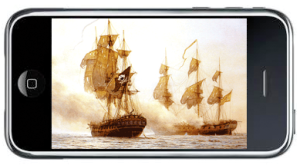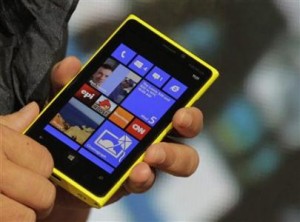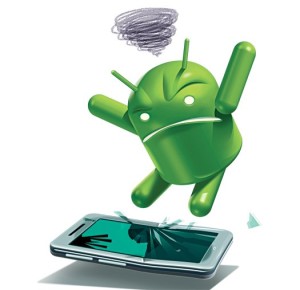 It continues to amaze me what a mess the Android platform is. Take two articles from last month: Android, too complex for its own good and Is Android too hard for the average user to figure out? Both articles highlight points I’ve been making all along about the failings of the Android platform from a user experience perspective.
It continues to amaze me what a mess the Android platform is. Take two articles from last month: Android, too complex for its own good and Is Android too hard for the average user to figure out? Both articles highlight points I’ve been making all along about the failings of the Android platform from a user experience perspective.
Take the Nexus 7, arguably the best tablet currently available for the price. When first introduced just a short while ago, Google made a big deal about how the Jelly Bean version of Android finally ran as smoothly as the competition.
What’s interesting about this statement is the fact that Google made a big deal of how this latest version of Android finally runs as smoothly as the competition, which almost certainly means as smoothly as Apple’s iOS. It would seem to me that “running smoothly” is a pretty big deal and should have been something that was done right in version 1.0, not version 4.1. But hey, “running smoothly” is just a little user interface detail. It’s just “polish”. What users really care about is gigahertz, how many ports a device has, and other arcane technical details, right? Wrong.
Regardless of what Android fans say about how technically superior their new favorite Android phone-of-the-month is, the bottom line is that user experience is *everything*. If it had taken Apple 4 versions to get the iPhone “running smoothly”, do we think we would still be talking about an iPhone today? There is a reason that the iPhone spread like wildfire. It was because the average, everyday person finally had a technical device that they could use without the help of a geek. The iPhone just worked and it empowered the user as no device ever had before. It wasn’t because of technical specifications or heavy advertising. It was entirely because of user experience, of which the user interface is the largest part of.
The other large part of user experience is reliability. Unfortunately, the Android platform is no where near as reliable as Apple’s iOS platform. The following is just one example:
That only lasted a few months as Google pushed an update to the Nexus 7 that broke the smooth operation affecting all aspects of the tablet’s performance. Scrolling is herky-jerky in all apps and for general system operation. The biggest improvement in Android since its inception has been broken by Google.
If Google can’t even keep Android reliable on their own Google-branded device, what chance do any of their OEM partners have? Evidence shows they aren’t doing so hot. Again, if Apple had issues with reliability on the scale that Android has had, do we really think there would still be an iPhone to be talking about?
If Android is dominant with respect to market share, why did Apple’s iOS-powered devices wipe the floor with Android when it came to Thanksgiving and Black Friday online shopping?
For all the boasting by Google and Android fans that Android has a larger smartphone marketshare than the iOS, they can’t answer the question as to why the iOS beats Android when it comes to usage metrics, such as web browsing share, app developer profitability, and most recently, holiday shopping figures. Why the discrepancies? For all the claimed marketshare numbers, why does it seem that iOS is the only platform that people actually use? There really is no great mystery to me why Android is a lame-duck platform, and it now finally seems others are catching on.
I think it comes down to one rather simple but key difference between the two platforms. iOS is easier to use than Android. Or, flipping that around, Android is too hard for the average user to figure out.
Can it really be that simple? Does it really boil down to the fact that iPhones and iPads are just so much easier to use than the plethora of Android devices out there? Of course, most technology “experts” would never believe that user experience could play such a factor, but then most of those experts still think they are in the Old World of Technology. In the New World of Technology, ease-of-use absolutely plays a critical factor in technology usage. Now that average people are heavy technology users, it is not shocking they gravitate to easy-to-use technologies, while still ignoring difficult ones. The trouble with most technology pundits (and technology companies) is that they don’t realize just how fine a line technology walks between being easy or being difficult for the average user. The fact that Android is a lame-duck platform should open their eyes to this fact, but don’t hold your breath.
Apple has spent a lot of time and money creating commercials that show its products being used to solve real-world problems. As short and as simple as these ads may be, they give owners — and potential owners — an idea of what the iPhone or iPad can do. That might seem extremely basic, but it gets people to explore the potential of their iDevice.
Compare this to ads I’ve seen for Android hardware, which seem to focus on the device itself rather that what it can do for the owner.
Well, duh. The Android market is dominated by hardware manufacturers trying to differentiate their products from the multitude of other Android copycats. What else can they differentiate on if not hardware specs? Of course, as I’ve said many times, most people don’t care about hardware specs. They care about user experience. As long as Apple is the only company that is truly committed to complete user experience – in hardware, software, and ecosystem – Android will continue to be too hard for the average user.
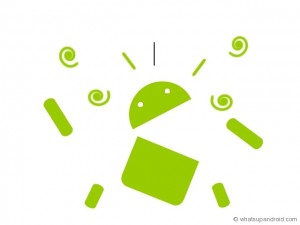
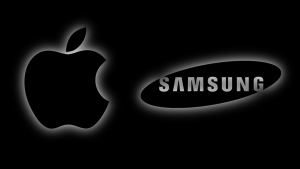

 Many
Many 